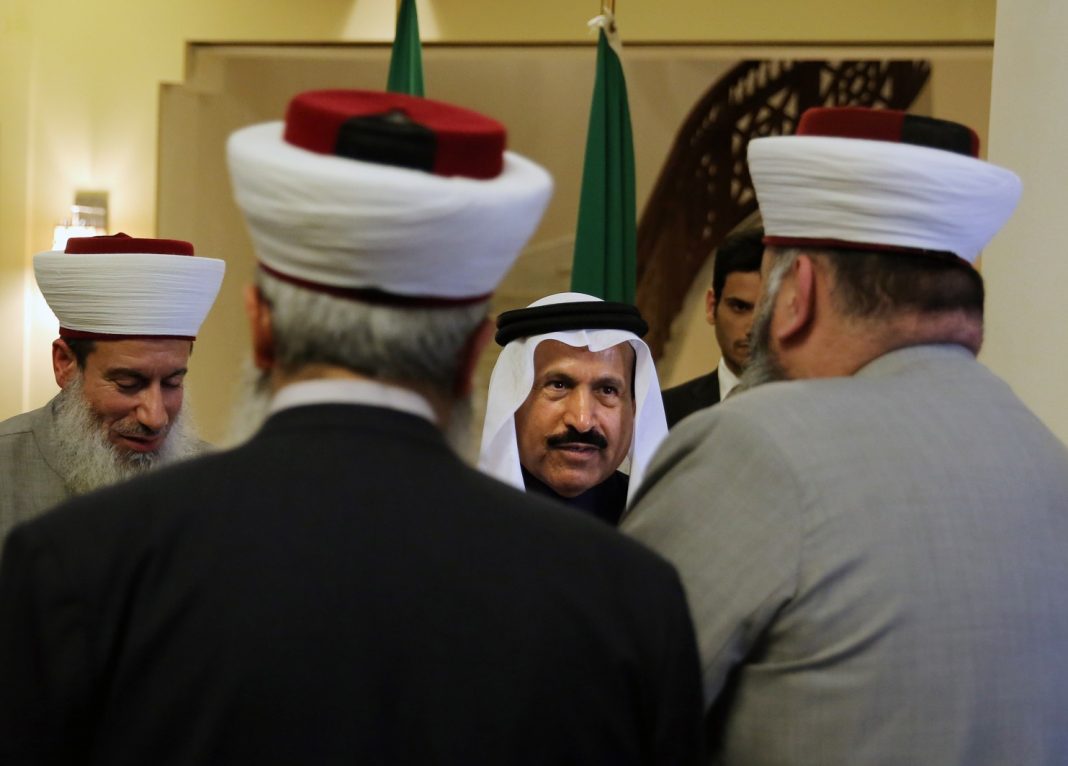Gulf expulsions threaten Lebanese remittances
By Osama Habib/The Daily Star./Published February 25th, 2016
Lebanon’s remittances and capital inflow could fall dramatically if some of the oil-rich Gulf states decide to expel a big number of Lebanese expatriates, economists warned Tuesday. “There are around 500,000 Lebanese working in Saudi Arabia and other Gulf states and nearly 15 percent of them are Shiites. If these governments opt to expel a large portion of the Shiites then this could affect the inflow of remittances quite considerably,” economist Ghazi Wazni told The Daily Star. The prospect of mass expulsion of Lebanese working in the Gulf Cooperation Countries heightened in recent days as Saudi Arabia decided to freeze the delivery of nearly $4 billion of grants to Lebanon to protest what it termed as Hezbollah’s intervention in Arab affairs and the failure of Foreign Minister Gebran Bassil to endorse the Arab League’s final communique on the attack against the Saudi Embassy in Tehran. A few days ago the United Arab Emirates expelled 20 Lebanese families under the pretext of security.
Sources said that most of those who are being targeted belong to the Shiite sect and some Christians who are politically affiliated with MP Michel Aoun, an ally of Hezbollah. Saudi Arabia and UAE Tuesday issued a travel warning for Lebanon and advised all their nationals to leave the country.
This action is seen as an attempt to apply pressure on the Lebanese government to rein in Hezbollah and to show more solidarity with all decisions issued by the Arab League. In 2015, remittances from the GCC fell by 27 percent to reach $4.5 billion and if more Lebanese are expelled this year, these remittances would definitely fall below $4 billion. However, Wazni did not believe that the GCC would expel all the Lebanese because it would be very difficult to find replacements for qualified employees. “I don’t think the Gulf states are even mulling the expulsion of most of the Lebanese but they could target some of the Shiites,” he added. Wazni said that in the worst-case scenario, which is not very likely, the Gulf states could expel the 75,000 Shiites expatriates, and if this happens the economic ramifications would be terrible. He stressed that Saudi Arabia and the GCC states have no interest in destabilizing the situation in Lebanon, especially since most of the economic sectors are very close to the Gulf States. “All or most of the banks and businesses in Lebanon have very good ties with the Gulf States and for this reason Saudi Arabia is not too keen on more punitive measures [because they would] hurt its supporters,” Wazni said.
Economist Marwan Iskander warned that the expulsion of the Lebanese Shiites from the GCC could have counter-effects.
“If the Lebanese Shiites and specially the wealthy ones were expelled, I fear that that this would bring them closer to Hezbollah. I hope that we will never reach this stage,” Iskander said. According to Iskander, the immediate effects of the Saudi measures are psychological and not financial.
He also ruled out the possibility of withdrawal of the deposits of Gulf nationals from Lebanese commercial banks. “I don’t think we have more than 15 percent of the deposits belonging to Gulf nationals. I don’t believe they will be withdrawn because the interest rates on deposits in Lebanon are higher than many other countries,” Iskander said. He also dismissed the possibility that the Saudi and Gulf investors would liquidate their hotel and tourism investments in Lebanon so quickly. “They cannot liquidate them overnight. Who is going to buy hotels in Lebanon under the current conditions?” Iskander explained.
The Gulf investments in Lebanon are close to $6 billion and are mainly in hotels, sea resorts and prime real estate. The economists also did not see catastrophic results in case Saudi Arabia decided to withdraw its $1 billion deposit at the Central Bank. They added that Lebanon’s foreign currency reserves at the Central Bank are around $48 billion and if they dropped by $1 billion, it would not make a big difference. Sources said that a high-ranking Lebanese delegation is expected to visit Saudi Arabia, UAE, Qatar, Kuwait and Bahrain soon to assert Lebanon’s strong commitment to these states.






















